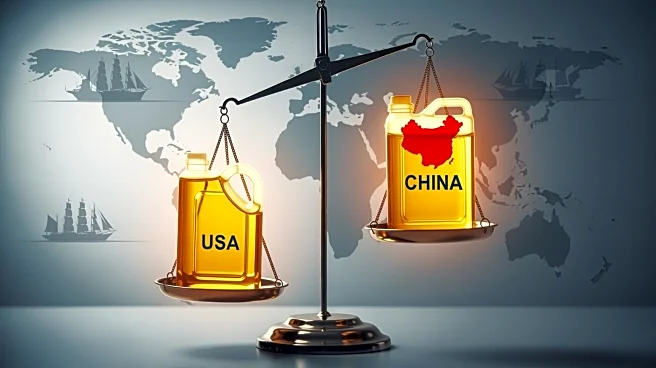What's Happening?
China has reacted to President Trump's latest trade threat concerning soybean purchases and cooking oil. The U.S.-China trade war reignited when China imposed restrictions on rare earth exports, leading
Trump to propose a 100 percent tariff on Chinese goods. This move has caused a global market sell-off. Chinese soybean importers have retaliated by not purchasing U.S. soybeans, impacting American farmers financially. Trump accused China of economically hostile acts and is considering terminating business with China related to cooking oil. China, once a major buyer of American soybeans, has not made any purchases since May.
Why It's Important?
The trade tensions between the U.S. and China have significant implications for global markets and agricultural sectors. The lack of soybean purchases by China affects U.S. farmers, many of whom are Trump supporters, leading to substantial financial losses. The proposed tariffs could further strain economic relations and impact consumer prices. The situation underscores the complexities of international trade negotiations and the potential for long-term market disruptions. The agricultural industry, particularly soybean farmers, faces uncertainty as trade policies evolve.
What's Next?
President Trump is expected to meet with Chinese President Xi Jinping later this month in South Korea, marking their first meeting since Trump's return to office. This meeting could be pivotal in addressing trade disputes and finding resolutions. Stakeholders in the agricultural and trade sectors are anticipating potential policy changes and diplomatic outcomes. The meeting may influence future trade agreements and impact global economic stability.











